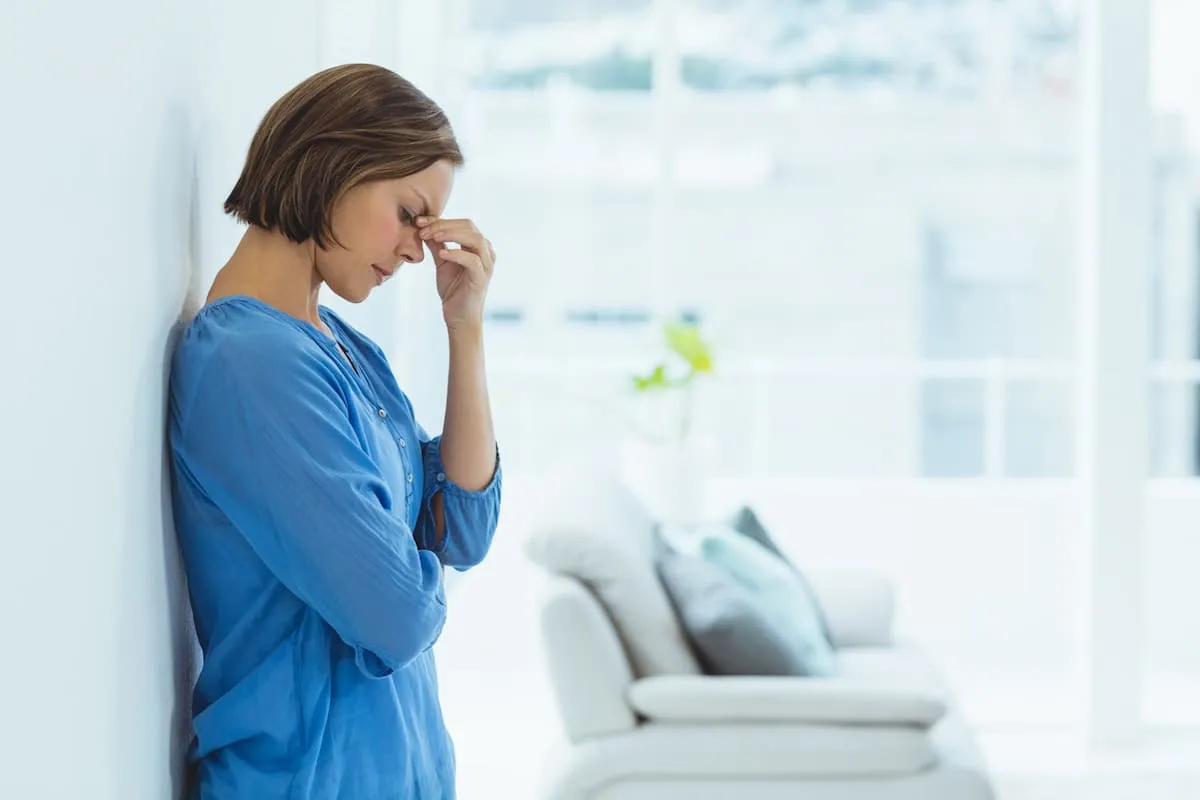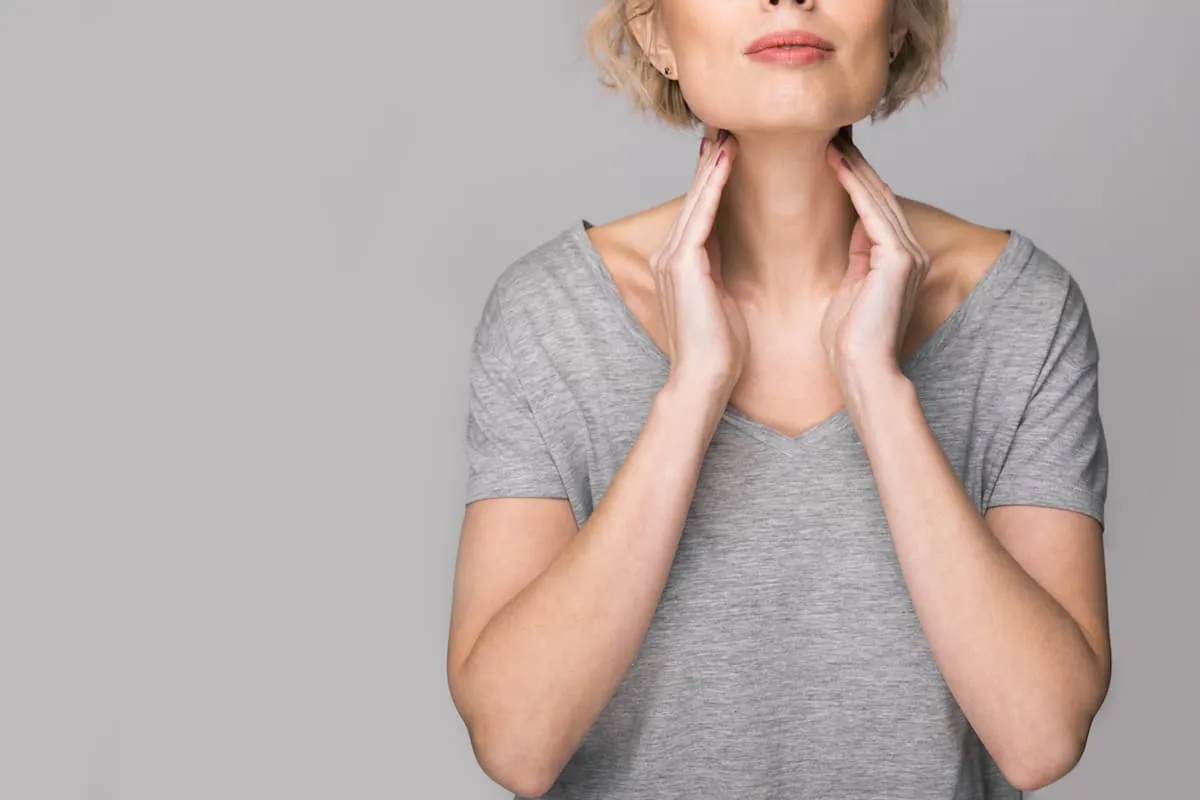Updated on 15. November 2021 from ÁYIO-Q Redaktion
Reading time: approx. 4 minutes
For mild to moderate anxiety associated with depressive disorders or anxiety associated with menopause, home remedies such as St. John’s wort extracts work very well. St. John’s wort significantly relieves symptoms after only one week and can be combined with valerian root, hop cones and passion flowers. Kava kava extract from the kava root is also very effective. Kava-Kava is currently only available as a homeopathic preparation in a highly diluted form.1
Rosemary also helps with anxiety and has a positive effect on mood. Iranian researchers found this in a 2018 study. 68 students participated, with 34 of them taking a capsule containing 500 mg of dried rosemary powder twice a day for a month. The second group of participants received only a placebo. The effects on memory, depression, anxiety and sleep were investigated. These had to be perceived and distinguished in detail. The results were then compared: The “rosemary” group produced significantly better memory performance than the “placebo” group. The anxiety, depression and sleep of the first group had also improved. Conclusion of the study: 1 g rosemary per day has positive effects on the above symptoms and can be easily included in the diet.2
10 vitamins against anxiety
- Vitamins A, C and E: protect against free radicals, which are increasingly formed during the development of anxiety.
- Vitamin B1: strengthens the nerves and energy balance and lifts the mood.
- Vitamin B2: regulates the formation of stress hormones and optimizes the utilization of energy from food.
- Vitamin B6: strengthens the nervous system, optimizes protein utilization in the body and is an ideal prophylaxis against states of exhaustion.
- Vitamin B12: also strengthens the nervous system.
- Niacin: supports the metabolism and promotes sleep.
- Pantothenic acid: reduces the formation of stress hormones and promotes energy production during times of increased energy demand.
- Folic acid: promotes the formation of red and white blood cells and increases general performance.3
CBD oil for anxiety disorders
Medicine and research prove that CBD is very effective against anxiety disorders and can prevent them. In this context, some German students took part in a clinical study on CBD at the University of Leipzig some time ago. 37 subjects between the ages of 23 and 61 with a diagnosis of anxiety disorder were divided into two groups. The first group each took 10 drops of CBD oil containing 15 percent CBD for 30 days. The dosage was five times 2 drops per day. The second group took 10 drops of rapeseed oil twice a day. Result: CBD oil reduced the subjects’ anxiety by 32 percent. Taking the canola oil as a placebo preparation did not significantly improve anxiety problems. The study also found that regular intake of CBD oil for anxiety led to improvement in the following symptoms: Flushing, trembling, fear of vomiting and intense urge to defecate and urinate.
For CBD to work, the dosage should be between 1 and 50 mg of CBD per kilogram of body weight per day, according to researchers at the University of Nottingham. Especially for anxiety disorders, it has been found that a rather small administration of CBD leads to very good results. Advisors recommend starting with a low dosage and increasing it as needed. This is the best way to adapt it to individual needs.4
Prophylaxis through minerals and trace elements
Magnesium: Scientific studies found that taking magnesium is very effective for anxiety disorders. Combined with vitamin B6, premenstrual anxiety disorders in women, for example, can be alleviated. Magnesium is generally the anti-stress nutrient among minerals.
Zinc: It is well known that zinc is important for mental well-being and brain performance. Evidence suggests that individuals with generalized anxiety disorder have lower zinc concentrations compared to healthy individuals. This is according to a 2013 study published by researchers from Bangladesh.
Iron: A poor supply of iron, for example, leads to increased anxiety in young children. US scientists also found that iron deficiency in children is significantly associated with psychological symptoms. Iron deficiency in infancy led to an increase in social phobias in adolescents, according to a Chilean study.
Selenium: Thyroid dysfunction is often associated with anxiety disorders. In this respect, the trace element selenium plays a significant role, as it can limit and thus alleviate the corresponding ailments.5
Diet for anxiety
Experts point to the positive effects of diet on anxiety. Although little research has been done on the benefits of certain foods for anxiety, the beneficial effects of certain substances contained in them are known. The following foods should therefore be included in the daily diet if you suffer from anxiety symptoms:
Nuts and seeds: They contain vitamin E, potassium, magnesium, vitamin B1 and omega-3 fatty acids. The fat contained should be given special consideration in the composition of dishes.
Whole grains: are an optimal source of B vitamins, magnesium and complex carbohydrates. The latter provide a long-lasting feeling of satiety and a slowed rise in various blood values such as blood sugar, cortisone, etc.
Low-fat dairy products: are full of B vitamins (especially B12) and calcium. But be careful: If too much of it is consumed, the positive effect can turn into the opposite. This has been proven by scientific studies.
Fruits and vegetables: contain many vitamins, minerals and antioxidants. It also contains secondary plant substances. While these are not considered regular nutrients, they have been shown to have health-promoting effects.
Fatty fish: contains valuable omega-3 fatty acids that can reduce or protect against anxiety problems.6
Note: In general, a diet rich in minerals and vitamins should be observed. The better you take care of your body, the more mental power is available.
If the suffering from an anxiety disorder is not treated, it can develop into anticipatory anxiety, which is the “fear of anxiety.” All potential triggers for this are then classified as risk factors and consistently avoided. Affected people withdraw more and more from life. In addition to their fears and physical illness characteristics, a lack of self-confidence and the permanent feeling of being at the mercy of others are added during the course of the disease.
Qualified tips and preventive treatment options for anxiety are available at ÁYIO-Q Centre of Vitality. The breathing exercises of ÁYIO-Q Pnoē Therapy and the drinking water cures of ÁYIO-Q Enerγó-Hydro Therapy are particularly popular. In a survey, 58 per cent of users said they had less anxiety after only a short time.
Related articles: Anxiety disorders
An Overview of the Nature of Anxiety
How conventional medicine treats anxiety
Sources:
[1] Deutscher Naturheilbund eV: Heilpflanzen gegen Angst und Depression, at https://naturheilbund.de
[2] Zentrum der Gesundheit: Rosemary – medicinal plant for memory, at https://www.zentrum-der-gesundheit.de
[3] ellviva – Your health portal: top ten vitamins for anxiety and stress, at https://www.ellviva.de
[4] Center for Health: CBD works for anxiety disorders, at https://www.zentrum-der-gesundheit.de
[5] DCMS: Link between anxiety disorders and micronutrient deficiencies, at https://www.diagnostisches-centrum.de
[6] Fachklinik Allgäu: Nutrition and Stress Accompanying information, at https://www.fachklinik-allgaeu.de















